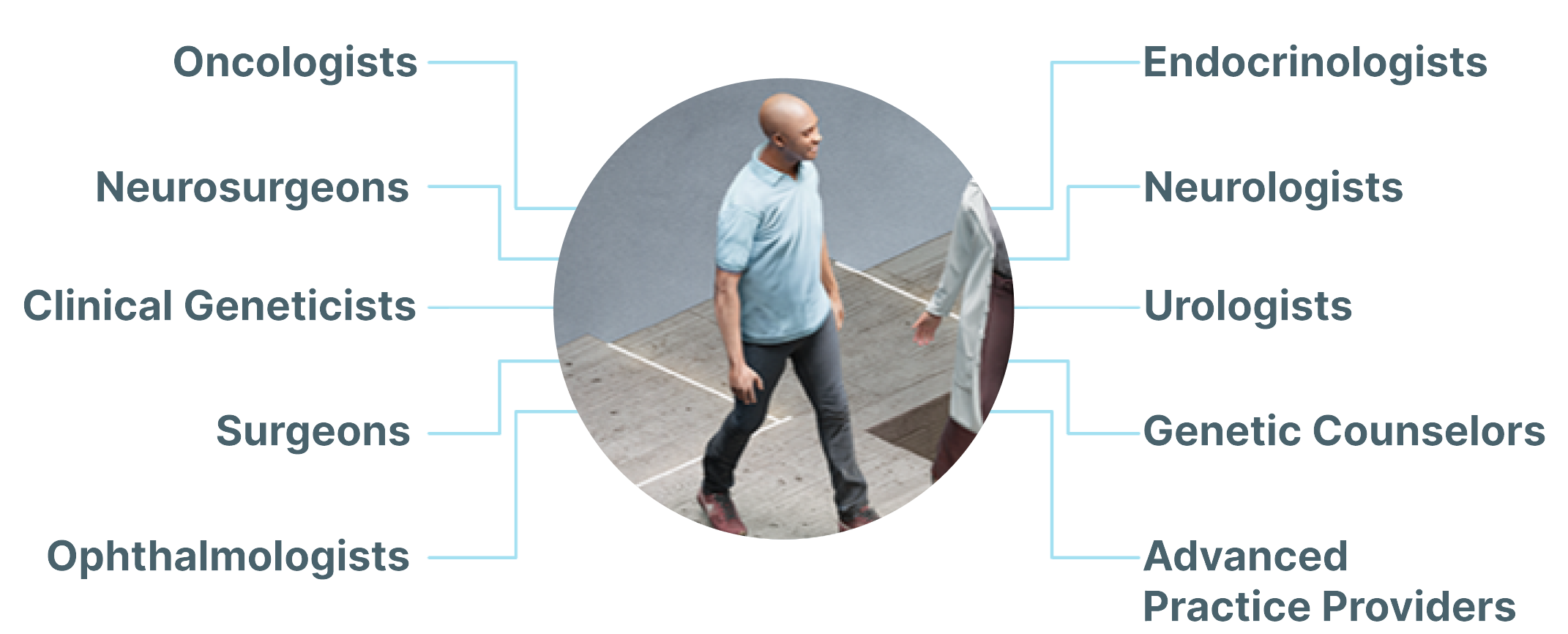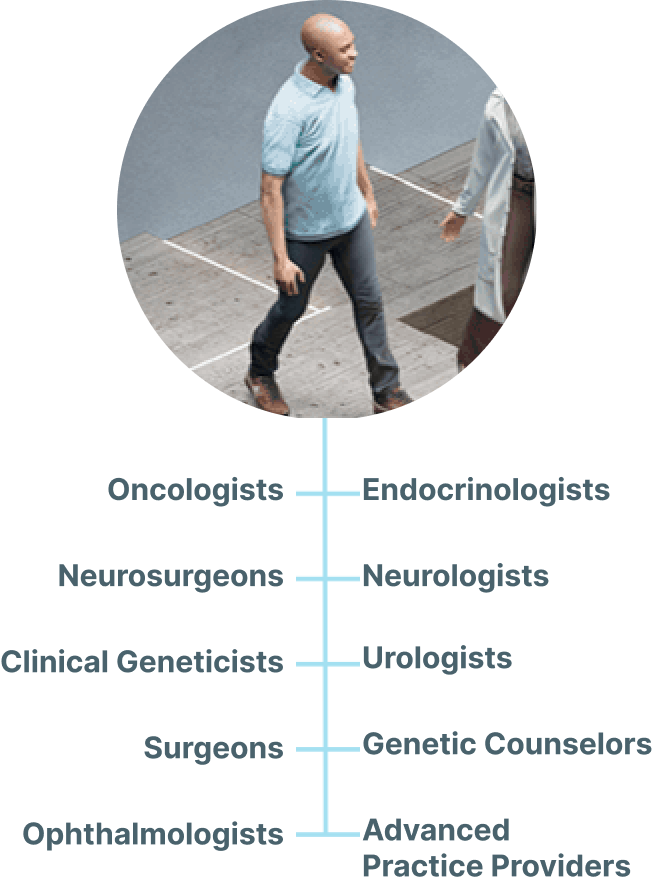Managing VHL disease requires a patient-centric
and multidisciplinary approach1–6
As patients with VHL disease may develop recurring tumors in multiple organs, it is critical to begin ongoing care with a multidisciplinary team as early as possible.


VHL Clinical Care Centers offer specialized care
There are ~40 VHL Clinical Care Centers in the United States that are committed to providing coordinated care for patients with VHL disease.7
There are ~40 VHL Clinical Care Centers in the United States that are committed to providing coordinated care for patients with VHL disease.3
- These specialized centers, often with systems or processes that are already
established, offer multidisciplinary teams coordinated by a specialist with extensive knowledge about VHL disease and its clinical manifestations.
~40
VHL Clinical Care
Centers
~40 VHL Clinical Care Centers
Managing VHL disease is a complex and lifelong effort2,8
The chronic, recurring, and unpredictable nature of VHL disease subjects patients to a lifetime of monitoring and multiple medical interventions.2-4
Regular
HCP Visits
Annual exams with
multiple specialists2,9
Regular
Radiologic Exams
Radiologic surveillance of the brain,
spinal cord, and other vital organs2,9


Management and Monitoring
Interventions and surgery as needed10
VHL = von Hippel-Lindau; HCP = health care professional.




